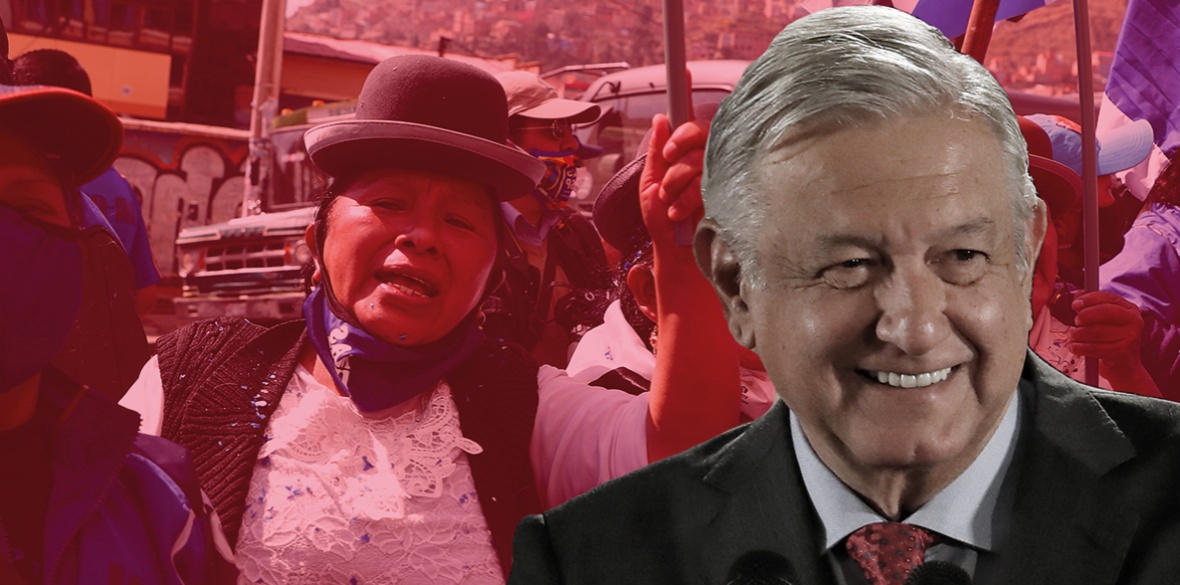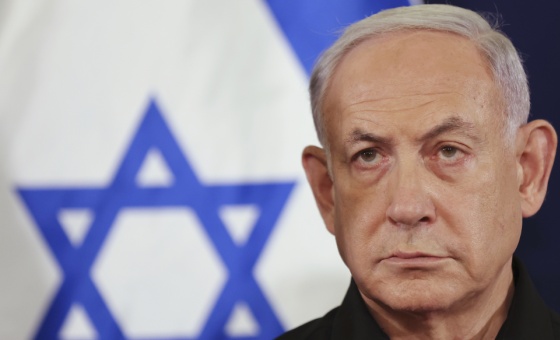This is the last article you can read this month
You can read more article this month
You can read more articles this month
Sorry your limit is up for this month
Reset on:
Please help support the Morning Star by subscribing here
A MONTH ago Amlo’s guest of honour was Argentine President Alberto Fernandez. Last week it was Bolivian President Luis Arce Catacora, elected in the triumphant restoration of democracy in that country last October as the people drove out the short-lived dictatorship of Jeanine Anez.
Luis Arce was Economy Minister under Bolivian President Evo Morales who was driven out by the October 2019 coup. Arce had followed Evo to asylum in Mexico and stayed there for two months before they moved to Argentina to be closer to home.
On this official visit as president, he thanked the Mexican people for their warmth and solidarity and reaffirmed the importance of Amlo’s action in saving Evo’s life from the brutality of the coup-mongers.
But this visit was much more than an expression of gratitude. Just like Argentina, Bolivia has now signed an agreement with Mexico to advance in “a genuine strategic association,” reactivating bilateral relations in all areas from migration, culture and science to economic and commercial ties.
Bolivians and Mexicans will no longer need visas to visit each others’ countries and the two governments will work together in the diplomatic sphere, especially to strengthen Latin American unity through Celac (the Community of Latin American and Caribbean States) which does not include the US and Canada, unlike the OAS (Organisation of American States).
The two countries agreed to share best practices in strategic themes of the agricultural and energy fields (where both are promoting nationalist policies to assert sovereign control). They also pledged to “explore areas of complementarity in productive chains” in such strategic sectors as lithium.
Bolivia’s lithium has attracted covetous interest from the US and Britain — and motivated Elon Musk’s notorious declaration “we will coup whoever we want.” Mexico also has large, so far unexploited, lithium deposits.
Just as Mexico and Argentina had done, Bolivia and Mexico now sent a pointed message to the OAS whose current right-wing secretary-general Luis Almagro has systematically abused his position to interfere in elections, most notoriously helping to promote the Bolivian coup.
In their joint declaration Amlo and Arce insist on the “exclusively technical, objective and impartial character” of the OAS’s electoral observation missions and their obligation not to interfere in the internal affairs of member states.
They also salute the role of the Inter-American Human Rights Commission and Court in investigating the events of Senkata and Sacaba in Bolivia between September and December 2019, where dozens of indigenous citizens were slaughtered by the coup regime.
The two countries confirm their commitment to promote universal, equitable and prompt access to medicines, vaccines and medical supplies to combat the Covid-19 pandemic and they proclaim the need in the post-pandemic recovery to prioritise popular welfare, social inclusion and sustainable development.
Development policies should be based on gender equality, should include access to water as a basic human right and should entail renegotiation of the foreign debt of low-income countries.
Cultural exchange and integration between the two countries also features prominently. A major Mexican cultural institute and publishing house will establish a centre in La Paz and both governments will support the creation of an Ibero-American Institute of Indigenous Languages.
As with the visit of the Argentine President, Amlo made sure that Arce was given red-carpet treatment.
He was invited to address one of the Mexican president’s famous press conferences and participated in numerous meetings and interviews. Also similar to Fernandez’s participation in a ceremony celebrating Vicente Guerrero, a hero of Mexico’s struggle for independence, was Arce’s attendance at an event celebrating the 1517 battle of Chakan Putum on the coast of Campeche State, where Mayan Indians inflicted a humiliating defeat on the invading Spaniards in the early stages of the conquest.
Arce was enthusiastic in his praise for this symbolic event: “From our ancestors of Abya Yala [an indigenous name for the continent] we inherited dignity and courage” and “our original native brethren defended their territory and culture with sovereignty, a concept which governs modern states. Following their example, we will work to strengthen Celac.”
The Mexico-Bolivia Pact makes it clear that with Argentina they are working actively to change the regional balance of forces in a progressive direction. While scrupulously avoiding any interference in other countries’ affairs, it is clear that they are hoping for a victory for left candidate Andres Arauz in Ecuador on April 11 and if this victory is confirmed Ecuador may well join the new alliance.
David Raby is a retired academic and independent researcher on Latin America. He can be reached at [email protected] and on Twitter @DLRaby.










